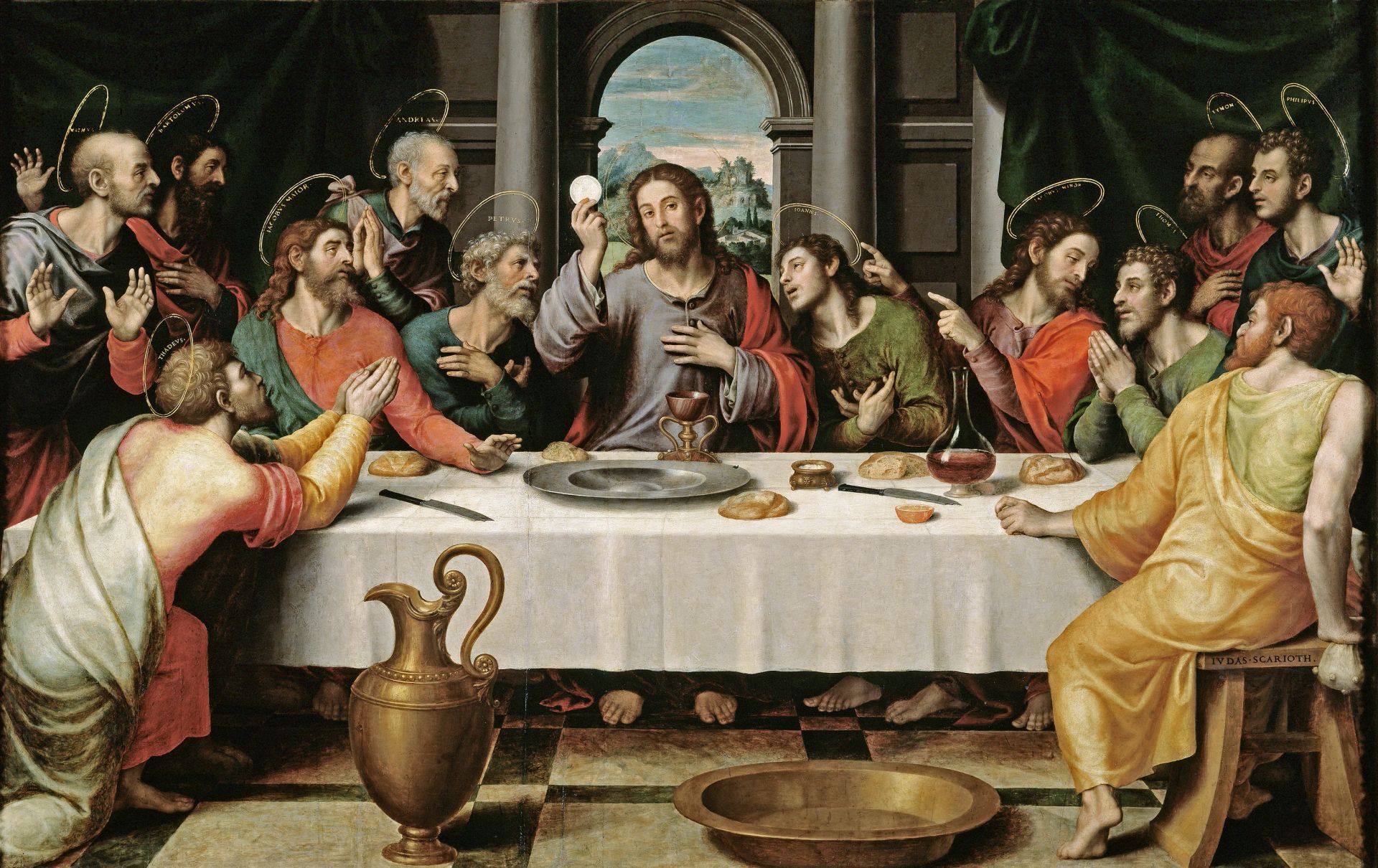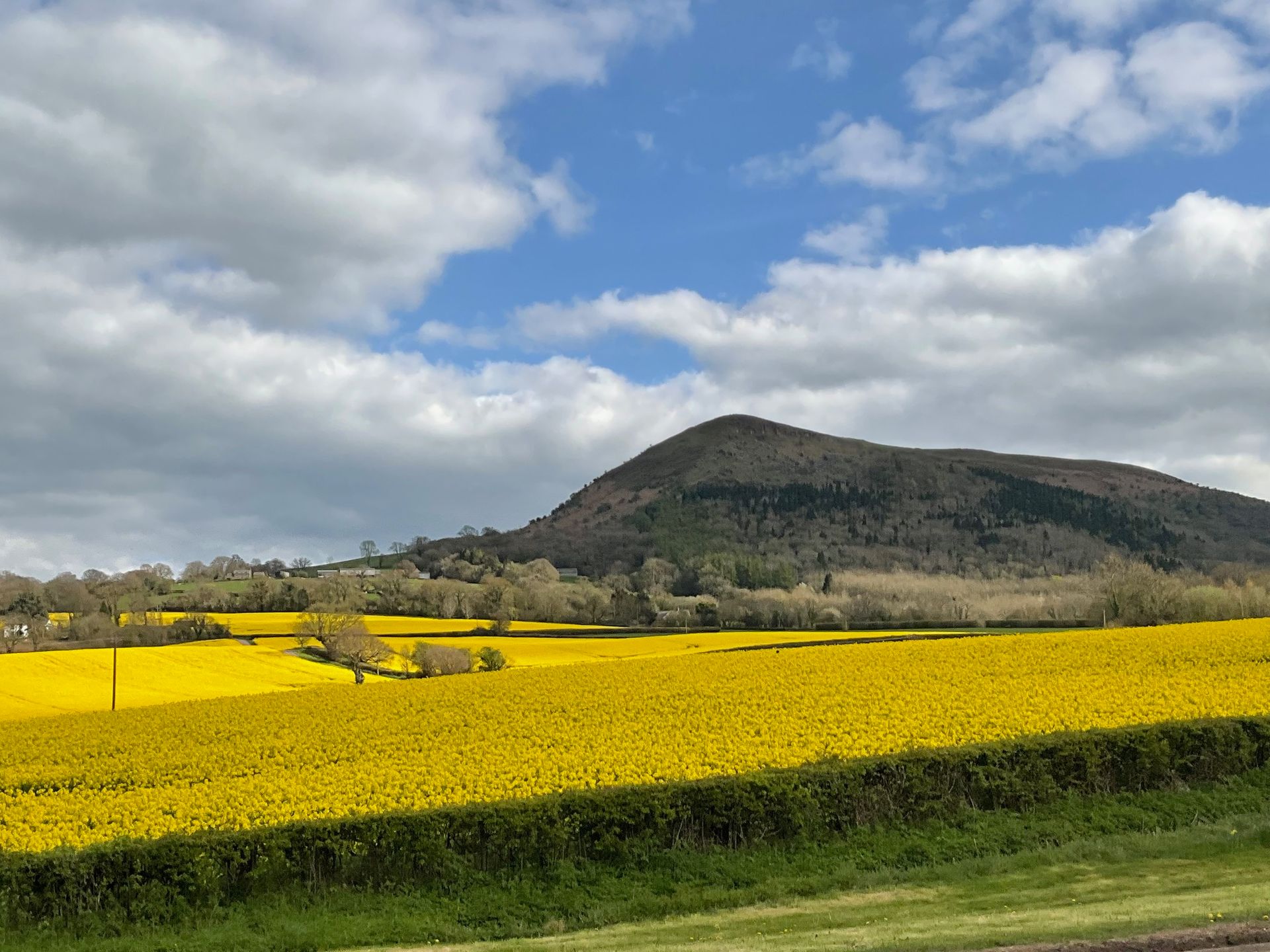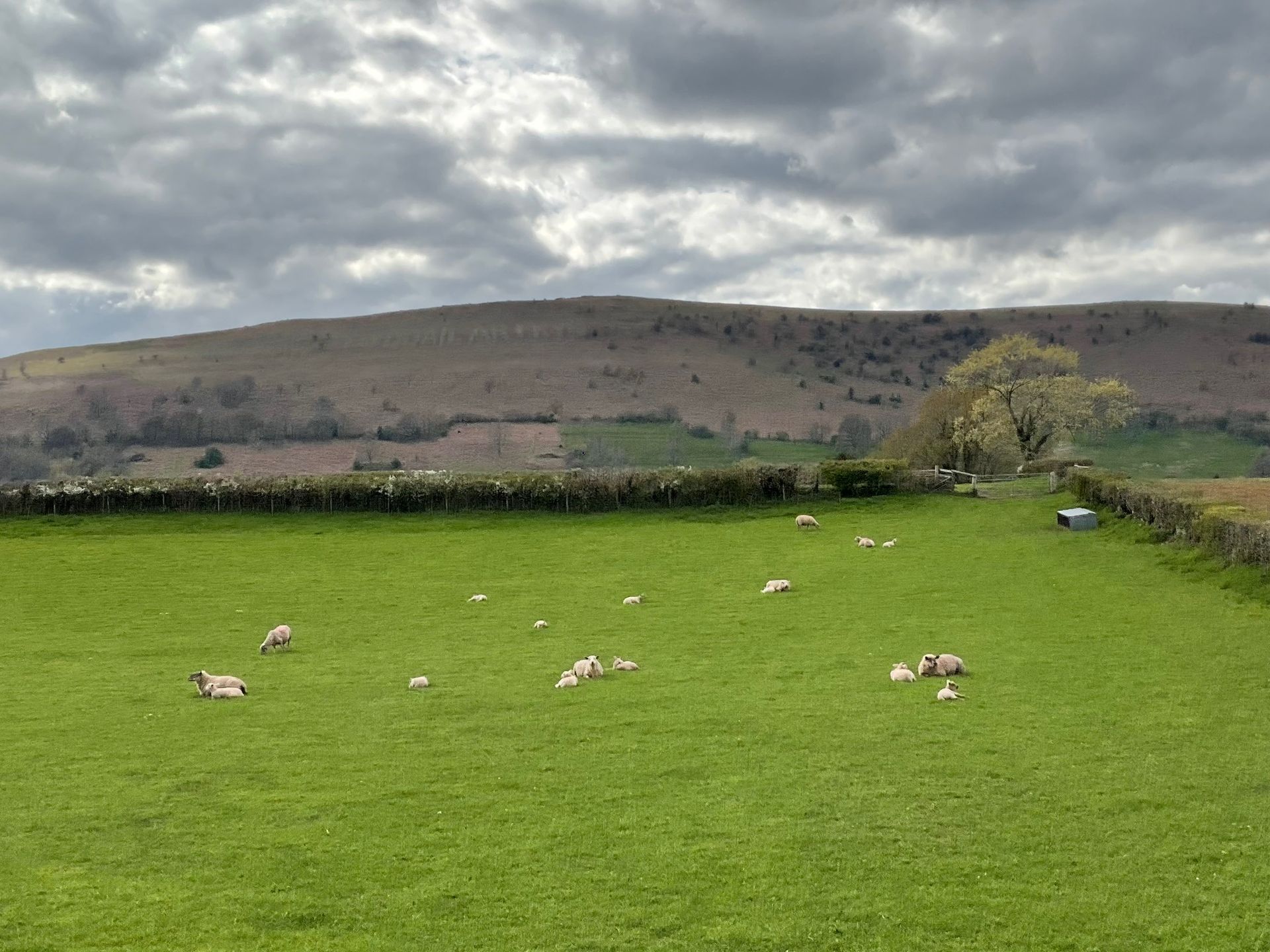Message of Abbot Paul - Wednesday 26th April 2023
Abbot Paul • April 26, 2023



Yesterday was a gloriously sunny day, yet cold, especially in the shade. I drove down to my mother’s for an early lunch, fresh and delicious, so that I could then take her to yet another clinic for her sixth Covid jab. She’s never returned to the same place twice and it always seems to be an ad hoc arrangement. Volunteer staff are invariably punctual and polite: it was a delight to see them interacting with my mum, the conversation centring on squirrels and sunflower hearts. My mother wages a constant battle against an astute fellow, the most handsome squirrel I have ever set eyes on and with the bushiest tail. On the way back, I stopped for a few minutes just opposite the Skirrid to enjoy the fresh air and take a few photographs.
We began reading John chapter 6 on Friday last, but have missed two days of the Discourse on the Bread of Life due to the feasts of St George and St Mark, that had proper readings. We return to John today, (Jn 6: 35-40). Jesus is addressing the crowd. You will remember that the episode began with the feeding of the five thousand and then moved to Capernaum.
“I am the bread of life.
He who comes to me will never be hungry;
he who believes in me will never thirst.
But, as I have told you,
you can see me and still you do not believe.
All that the Father gives me will come to me,
and whoever comes to me I shall not turn him away;
because I have come from heaven, not to do my own will,
but to do the will of the one who sent me.
Now the will of him who sent me
is that I should lose nothing of all that he has given to me,
and that I should raise it up on the last day.
Yes, it is my Father’s will
that whoever sees the Son and believes in him shall have eternal life,
and that I shall raise him up on the last day.”
Although he fed the five thousand with the five loaves and two fish offered by a small boy, Jesus points out to the crowd that he himself is the true bread, the bread of life, and that feeding on him, coming to him and believing in him, will take away any deep and insatiable hunger and thirst they might have, the hunger for forgiveness and thirst for everlasting life. Jesus insists that he will not turn anyone away, because he has come down from heaven not to do his own will, but the will of the Father who sent him. It is the Father’s will that no one should be lost. What is more, it is the Father’s will that whoever sees Jesus and truly believes in him and obeys him, will have eternal life and be raised up by God on the last day. The message of Jesus is one of consolation and hope. No one will be turned away. All we need do is believe in him and come to him with a repentant and open heart.









